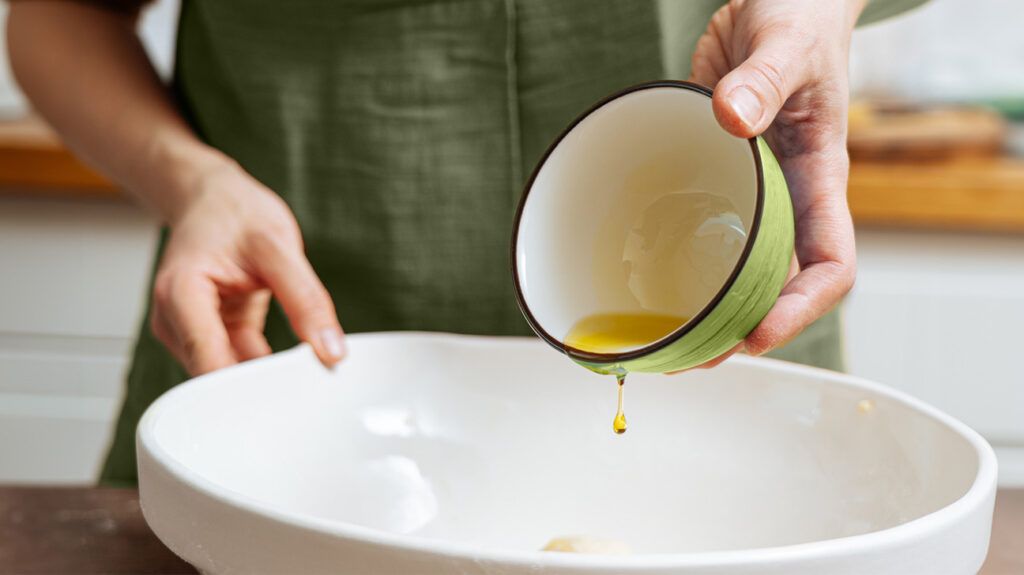Grapeseed oil may have health and beauty benefits due to its vitamin E and omega-6 fatty acid content. However, some claims are controversial, and more research is necessary.
When producers make wine by pressing grapes, they leave grape seeds behind. People can extract grapeseed oil from these leftover seeds. People may use grapeseed oil as a natural beauty product, and companies market it as a healthy alternative to vegetable oil.
This article examines the potential benefits of grapeseed oil. It also explores this product’s safety, how to use it, and more.
Fast facts on grapeseed oil
Here are some key points about grapeseed oil:
- Grapeseed oil is high in omega-6 fatty acids.
- Some people use the oil on their hair and skin as part of their beauty regimen.
- Buy expeller- or cold-pressed oil for use in the kitchen.

Grapeseed oil is high in polyunsaturated fatty acids (PUFAs), mostly omega-6 fatty acids.
According to the
PUFAs
Vitamin E
Grapeseed oil is a
Vitamin E works as a fat-soluble antioxidant. Antioxidants help protect cells from free radicals, which researchers associate with cancer, heart disease, and other chronic illnesses.
This vitamin also supports the immune system. Research suggests an association between high vitamin E consumption and a lower risk of dementia and Alzheimer’s disease. However, more research into this association is necessary.
Vitamin E can withstand heat, and grapeseed oil has a high smoke point. However, any cooking oil will deteriorate fast if a person overheats it.
Some companies use grapeseed oil in their skin care and hair care products, and many people use grapeseed oil as a natural beauty remedy.
However, there are no clinical studies on the effectiveness of grapeseed oil for these purposes.
Grapeseed oil for healthy skin
Many of grapeseed oil’s supposed beauty benefits may be due to its vitamin E and omega-6 fatty acid content. Free radicals and environmental factors such as sun, wind, and pollution can affect the skin, increasing the signs of aging and causing dryness and discoloration.
Vitamin E helps eliminate free radicals, so it may help improve a person’s skin when they consume it in their diet. The same benefits may occur when a person applies it directly to their skin in grapeseed oil. However, there is no clinical evidence of these benefits.
Omega-6 and omega-3 fatty acids
Grapeseed oil penetrates skin quickly and doesn’t leave it feeling oily. Since grapeseed oil doesn’t clog pores, it is ideal for all skin types, including oily skin that needs moisturizing.
To use grapeseed oil on their face, a person can massage several drops into clean skin before bed at night. They may also repeat the process in the morning if they wish.
Grapeseed oil for healthy hair
Some natural oils, including olive oil and coconut oil, are good for the hair but leave it feeling greasy and weighed down. Grapeseed oil is lightweight and does not have that effect. Some people believe grapeseed oil may add moisture, strength, and shine to hair. However, there is no scientific evidence to back up this idea.
A person who wishes to try grapeseed oil for these purposes can massage a couple of tablespoons of the oil into their hair and scalp before shampooing.
Grapeseed oil has a high smoking point,
What is grapeseed oil good for?
Some people use grapeseed oil in beauty products and as a cooking oil. It has many health benefits, including high levels of polyunsaturated fatty acids and vitamin E.
Is grapeseed oil good for frying?
Grapeseed oil has a high smoking point, making it great for frying food.
What are the benefits of grapeseed oil?
The benefits of grapeseed oil include high levels of vitamin E and omega-6 fatty acids, which contribute to heart health. Another potential benefit is reduced cholesterol.
Cold-pressed or expeller-pressed grapeseed oil can be part of a healthy diet in moderation. It has a neutral flavor and works well in many recipes.
Some people believe this kind of oil may also help keep a person’s skin looking younger and make their hair stronger and more luxurious. However, there is no clinical evidence of these benefits. Consuming grapeseed oil has no known side effects unless a person has an allergy to grapes.
Natural products can cause allergic reactions when people use them on the skin. A person should contact a doctor if they experience discoloration, itching, or a rash.


